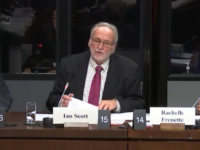The start of a new year often means a fresh start and for the CRTC, it meant welcoming a new chair, as Vicky Eatrides officially took over as chair a few days into 2023. Eatrides comes to the Commission at a particularly busy time with wireless competition concerns top of mind for many Canadians and the government set to ask the Commission to play a pivotal role in implementing Bills C-11 and C-18.
Konrad von Finckenstein is someone who knows quite a bit about the challenges faced by new CRTC chairs, having served in the role from 2007 to 2012. He was recently appointed to the Order of Canada for his many contributions to public life and he joins me on the Law Bytes podcast to reflect on those experiences in the context of the CRTC. Our conversation reflects on what is involved in launching entirely new programs, ensuring public engagement, and developing policies that enjoy both public support and can withstand potential legal challenges.











